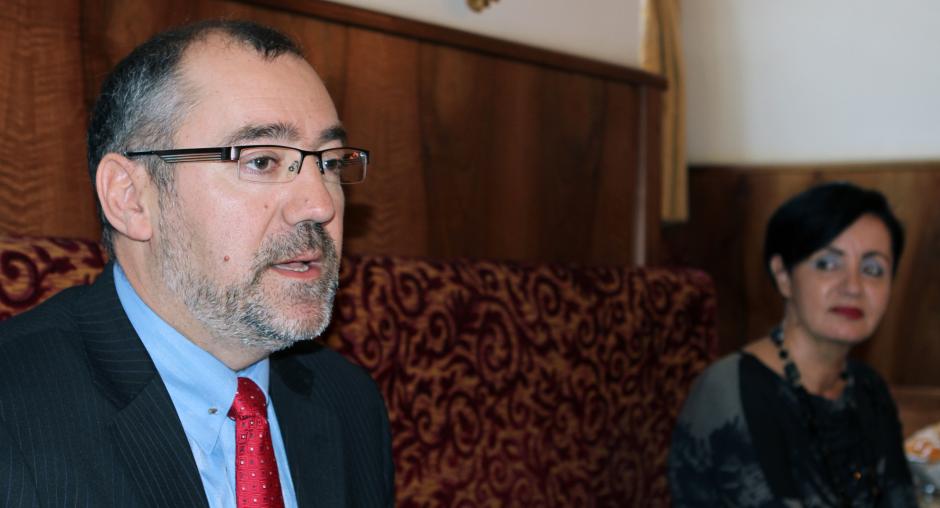Gender-sensitive policing can help provide more security to all, say participants of OSCE discussion

The OSCE Gender Section held on 21 September 2012 in Vienna a discussion on gender-sensitive policing, its benefits and the challenges it faces, as well as the possibilities for gender mainstreaming within police forces in the OSCE region. The discussion was held on the margins of the OSCE’ Annual Police Expert Meeting which gathers police and security experts from the 56 OSCE participating States.
Miroslava Beham, the OSCE Senior Adviser on Gender Issues, highlighted the need for a comprehensive reform of the security sector that goes to the core of how security is defined.
She stressed that such reform should go beyond the mere inclusion of women in the police: “By reforming not only the composition of the police, but also the perception of what security is, the police force can gain more credibility and increase its understanding of and effective outreach to the people it serves.”
The keynote speaker, Daniel de Torres from the Geneva Centre for the Democratic Control of Armed Forces, outlined the need for and practical ways of gender mainstreaming in the police: “As the security service closest to the population, the police is under the highest pressure to provide community-based, gender-sensitive security. Adequate structures, policies and training are necessary, but the single most important move for a police service is to actively listen to women’s voices.”
“After all, women don’t speak just for women: they speak for the whole community, from a different perspective, with a different voice. A gender-sensitive, inclusive police service will be able to provide better security to all, men and women, in the community it serves,” de Torres added.
The meeting participants raised issues concerning the interpretation of UN Security Council Resolution 1325 on women, peace and security and its applicability in the OSCE region, the risk of typecasting of women into certain areas of policing and the need to enhance understanding of gender at the institutional level.
